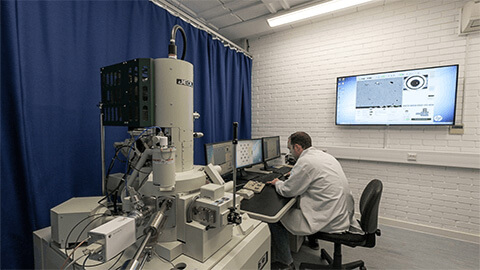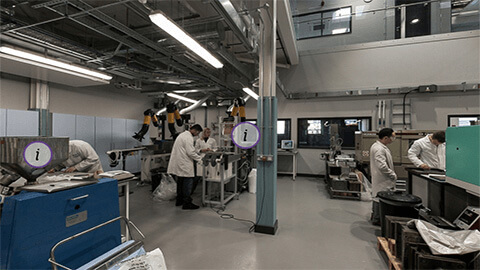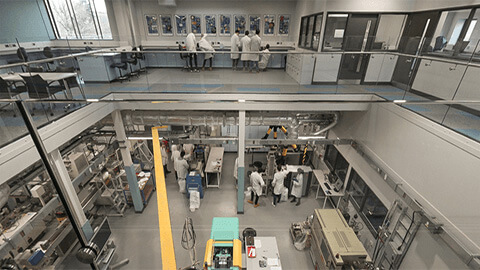Materials Engineering
For over 40 years materials science and engineering has been a core strength at Loughborough University. We have a longstanding international reputation for our materials teaching and research.
Materials at Loughborough
Materials is a discipline which underpins global industry, opening worldwide opportunities for a well-paid and rewarding career. From materials developed to increase the effectiveness of replacement joints to advances for a more fuel-efficient vehicle design, opportunities are endless.
In Materials you'll explore and deepen your understanding of the scientific, engineering and design aspects of materials, their structure, properties, processing, in-service behaviour and environmental impact at a more advanced level. You'll also immerse yourself in a supportive learning environment, where you will be supported by our academics to help you reach your full potential.
Master's degrees
Research degrees
Research and teaching
Our academics are leaders in their fields of research and are in demand for research collaborations, so you can be assured that our taught content reflects our world today and is at the cutting-edge of current research practices.
The programmes have a long track record of delivering high-quality, research-led education. They are designed to help you develop your critical awareness, nurture innovative ideas and understand the role of materials in the world around you. Collaborations with other departments across the University enrich our research provision as we focus on tackling today’s global challenges, including sustainability, nanomaterials, composites and processing.
Our philosophy is based on an understanding of the relationships between materials’ composition, processing, microstructure and properties, and upon completing our programmes you'll be able to apply your knowledge to all products and engineering applications. We provide you with knowledge of materials selection, in terms of design considerations, as well as the implications certain materials may have on business and the environment.
Links with industry
We work in a broad range of industrial sectors including aerospace, defence and healthcare for a range of companies such as Rolls Royce, BAE Systems and Bombardier Aerospace. Our projects range from determining the cause of component failure in-service to delivering new materials and processes.
Facilities
We have excellent facilities which include a newly refurbished and extended materials processing and pilot area, and the Loughborough Materials Characterisation Centre (LMCC) which is one of the best suites of its kind in Europe. The centre supports our research and teaching activities developing an understanding of the interactions of structure and properties with processing and product performance.
Accreditation
Our Polymer Science and Engineering programme is accredited by the Institute of Materials, Minerals and Mining (IOM3). Accreditation by the IOM3 facilitates progression towards professional chartered status (CEng) after a period of relevant graduate-level employment.
In line with the accrediting body’s review processes, our remaining programmes are undergoing reaccreditation to ensure they continue to offer professional registration opportunities.
Career opportunities
Graduates from our department leave with a breadth of technical skills and expertise, far beyond their particular degree specialism. Their skills are in demand across many industry sectors such as:
- aerospace,
- automotive,
- defence,
- oil and gas,
- pharmaceuticals,
- sports,
- and transport and utilities.
Continue your studies
Undertaking a PhD in Materials Engineering is challenging, yet rewarding and whilst strengthening your research ability, it will also allow you to develop a much wider range of transferable skills that can be applied to a range of industries.
A higher degree, such as a PhD, can accelerate your career and facilitate progression into positions with higher responsibility. Upon completion of your PhD, you may also wish to stay within academic research, either securing a post-doctoral research position or lecturing role, within the UK and international institutes.
Our students
Materials in action
We've worked alongside Trelleborg Applied Technologies to address the problem of wind turbine radar interference. We support te sustainable energy generation by developing technology that allows wind farms to be built closer to airports, military bases and weather stations that rely on radar.
The accelerated development has provided Trelleborg with a strong opportunity to expand its capabilities and consolidate its place in the stealth technology market which has an estimated value of more than £500 million globally.









